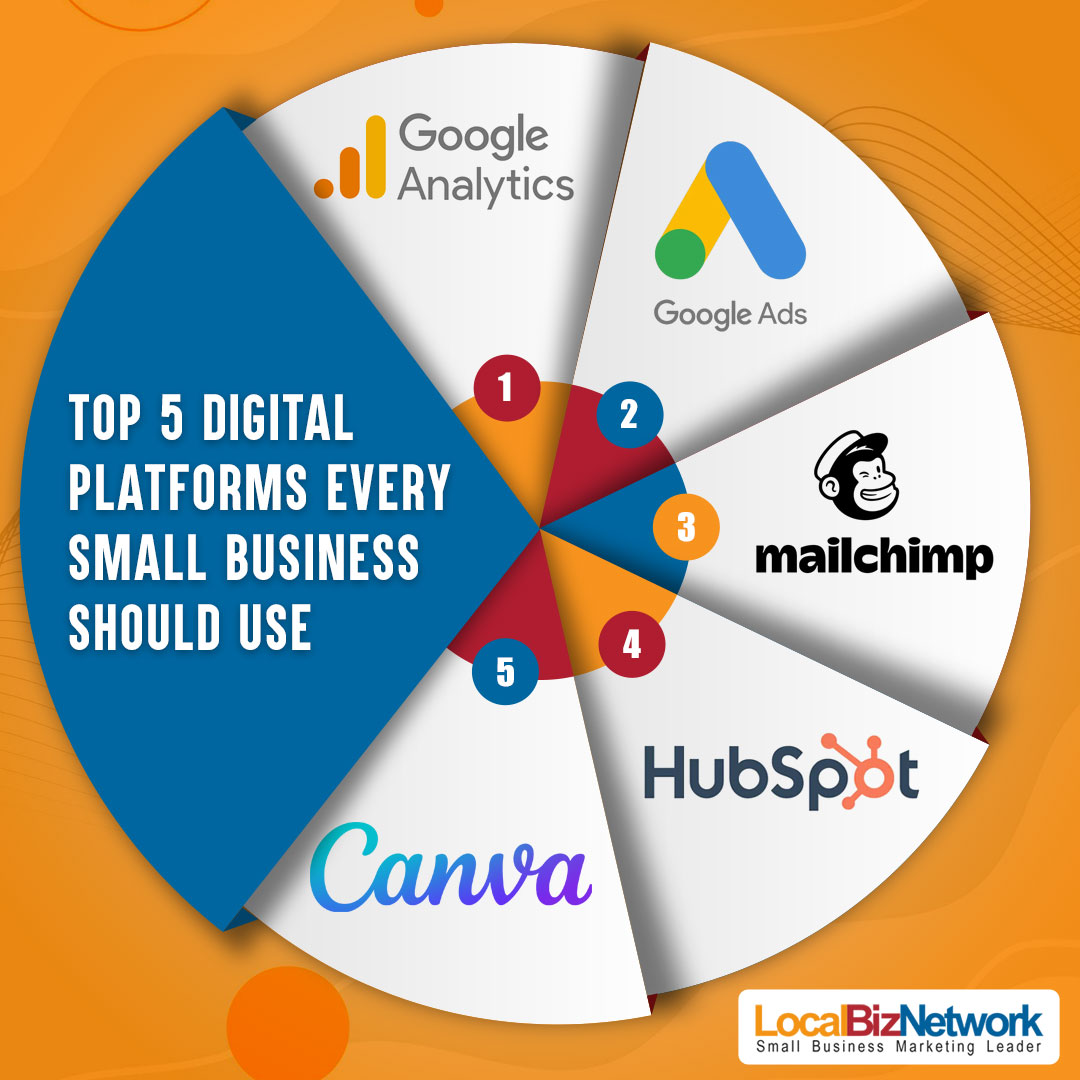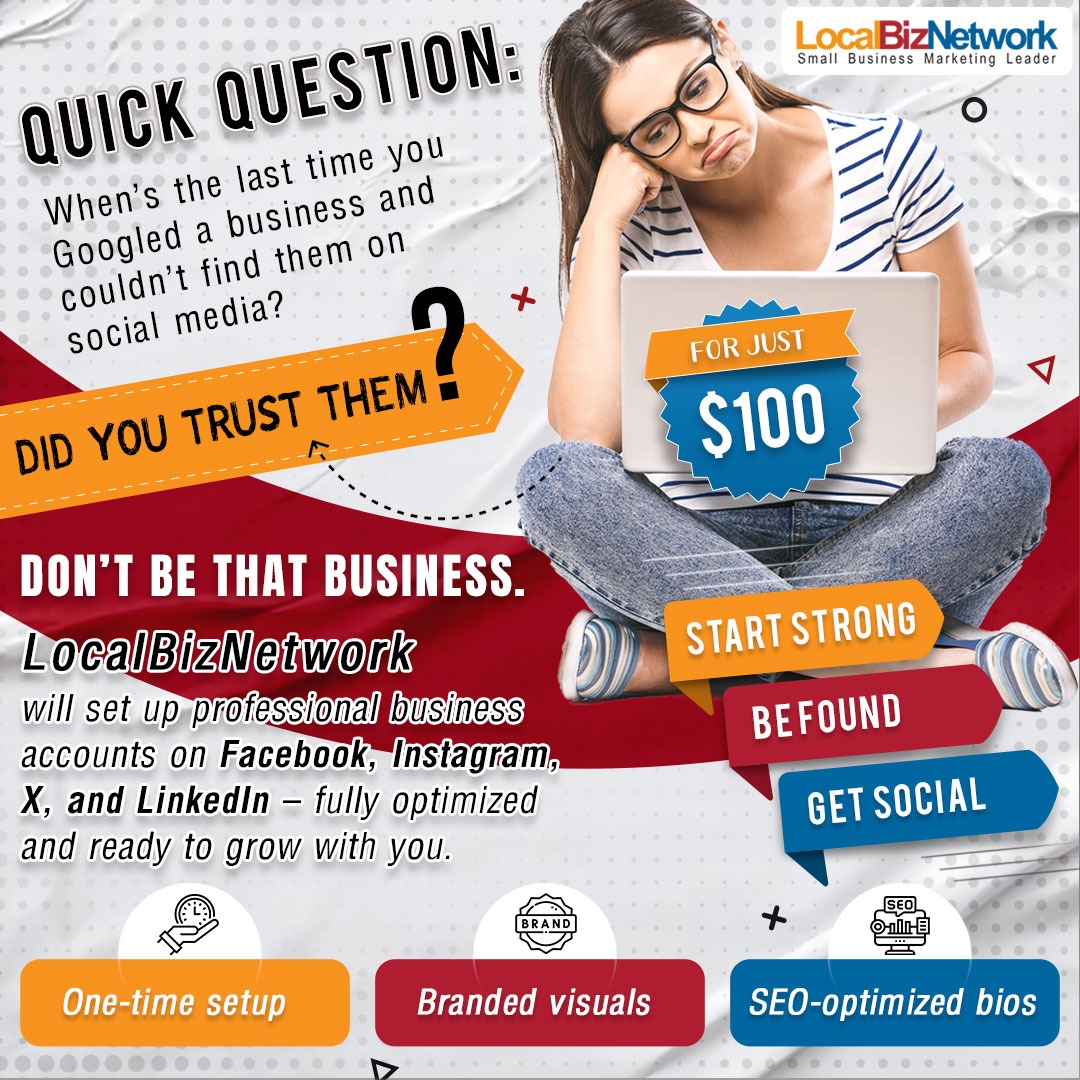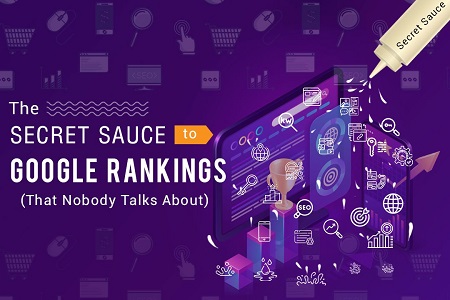Top 5 Digital Platforms Every Small Business Should Use

Entrepreneurs are prone to get consumed by the passion and driving force that gets things done. As a result, you don different hats and burn the midnight oil. But in reality, you need all the help you can get – people or technologies.
In today’s competitive market, utilizing digital platforms is a standard requirement for a business to thrive. Each tool has its purpose, and learning to maximize its potential is the key to success.
Small Business Digital Transformation – Tools to Use
Now, there are numerous tools out there, and personally trying them all out is impossible. Hence, this list of the top 5 digital platforms that could be of great use to small businesses. Let’s take a look at them!
1. Google Analytics
Google Analytics is like the crystal ball of the digital business world since it can provide useful data like who visits your website, how they interact with their content, what impresses them, and more.
According to W3Techs, over 55% of the websites worldwide use Google Analytics to understand visitor behavior. Finding and engaging with the right audience is crucial for every business, but especially for small businesses. Google Analytics will help you tailor your marketing efforts to match the requirements of your target audience. This will be your first step in competing with the top competitors but also without breaking the bank.
How to make the most of it
- Track key metrics: Focus on learning the effectiveness of your website in engaging visitors through tracking sessions, conversion rates, and bounce rates.
- Audience segmentation: Classify the visitors by segregating website traffic in terms of device, location, and interests. This will help create personalized marketing strategies for different groups.
- Measure performance: Use conversion tracking to understand the success rate of your marketing campaigns and what you can improve in the future.
- Set goals: Define specific goals about audience behavior and track your progress.
- Identify sources: Track the origins of website traffic and the platforms that perform the best.
2. Google Ads
Google Ads is your faithful publicist which will showcase your product/service in front of the potential customers right when they are searching for similar items. If you want to drive targeted traffic to your website and also generate revenue then Google Ads is an essential tool.
According to a study by WordStream, businesses that use Google Ads make an average of $2 in revenue for every $1 spent on the tool. That’s almost doubling your investment and a great opportunity for small businesses looking to improve their online presence.
How to make the most of it
- Targeted advertising: Depending on the search queries done by the target audience, create customized ad campaigns that will resonate with them. Using long-tail keywords makes it easier for small businesses to rank since they are more specific and less competitive.
- Use smart bidding: Save time and money by letting Google’s AI optimize your bids for conversions.
- Measure performance: Monitor the performance and ROI of the ad campaigns.
- A/B testing: Test different ad copies and landing pages to know the preferences of your audience.
3. MailChimp
For everyone who thinks email marketing is old-school, here’s a statistic to blow your mind. For every $1 spent on email marketing, the average return is $42.
MailChimp is one of the most user-friendly email marketing platforms that makes it easy to engage with your customers and keep them informed of updates about your products and business.
How to make the most of it
- Automation: Automate email sequences for targeted messaging. For example, you can automate a welcome email series for your new subscribers and introduce your brand.
- Grouping: Segment your audience based on factors like behaviors, preferences, and interests to generate and send targeted messages.
- Analytics: Use the reports to track the performance of the emails like which ones get the most opens and clicks. Use the assessment to adjust your strategy accordingly.
Also Read: How to Prepare Your B2C Business for Global Markets?
HubSpot
HubSpot is the Swiss army knife of digital marketing platforms since it offers everything from CRM (Customer Relationship Management) to email marketing and more. You can also track customer interactions and sales activities all in one place.
How to make the most of it
- Track customer journeys: Understand where leads are in the sales funnel and how to push them towards conversion.
- Manage activities with CRM: Use HubSpot’s free version of CRM to schedule emails, manage contacts, and even automate simple tasks.
- Integration: HubSpot seamlessly integrates with other email marketing, social media, and content management tools.
Canva
Visual content and videos are the golden ticket now to capturing attention online and Canva is the best tool for creating stunning graphics without spending too much. This tool can help create professional-looking social media posts, presentations, and more without needing professional knowledge about designing. Creating unique visual content can help set your brand apart and capture the eye of your audience with an affordable budget.
How to make the most of it
- Brand Kit: Create a brand kit with your logo, brand colors, and fonts to create a consistent design for your content across all platforms.
- Utilize templates: Explore Canva’s ready-made templates to create social media posts, posters, presentations, and newsletters.
- Collaborate: You can collaborate with your team members by sharing your design.
LocalBizNetwork
Along with using the right tools, you will have to list your business with the best small business directories to increase your online presence. At LocalBizNetwork, your LBN business profile will provide you with the space to showcase the best things about your business and also provide updates for your potential customers. Check out our website here to know more about the features offered.
Frequently Asked Questions
Why should small businesses use digital platforms?
Digital platforms help small businesses improve visibility, engage with customers, and optimize operations, ultimately driving growth and revenue.
How can Google Analytics benefit my small business?
Google Analytics provides insights into website traffic and user behavior, allowing you to tailor your marketing efforts and improve engagement.
What is the ROI of using Google Ads?
Businesses typically earn about $2 for every $1 spent on Google Ads, making it a powerful tool for targeted advertising and increasing sales.
Is email marketing still effective?
Yes, email marketing boasts an average return of $42 for every dollar spent, making it one of the most cost-effective marketing strategies.
What features does HubSpot offer for small businesses?
HubSpot provides a comprehensive suite, including CRM, email marketing, sales tracking, and integration with other tools, all in one platform.
How can Canva help with my marketing efforts?
Canva allows you to create professional-looking graphics and visuals easily, helping to enhance your brand presence across various platforms.
- Oct 25, 2024






